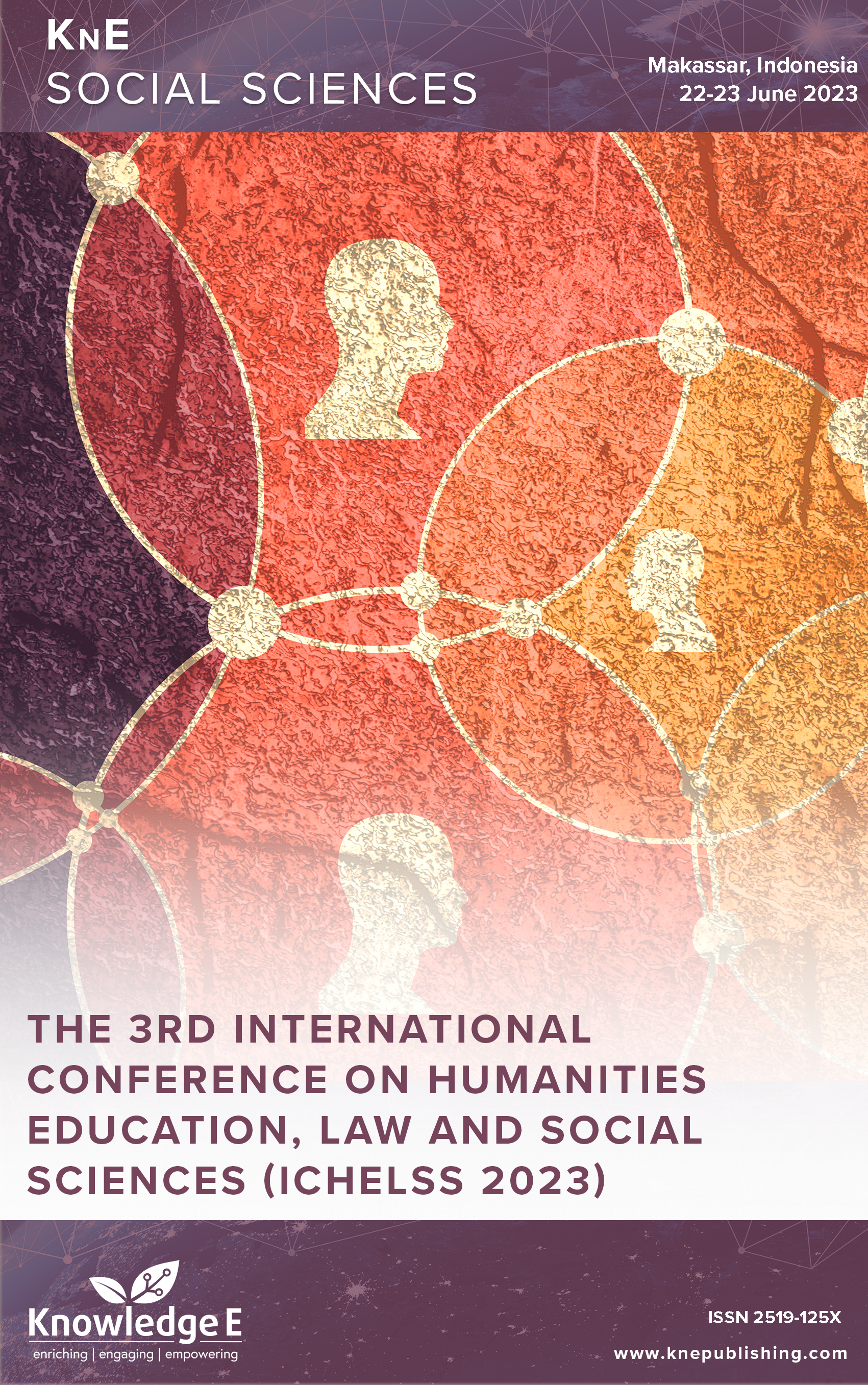Ecopedagogy of Island Communities: Conception, Planning to Action in Building Environmental Awareness in Kelapa Island and Harapan Island, Administrative District Kepulauan Seribu-DKI Jakarta
DOI:
https://doi.org/10.18502/kss.v9i2.14872Abstract
This study intends to examine the conception, planning, and action in building environmental awareness in Kelapa Island and Harapan Island, Administrative District Kepulauan Seribu, DKI Jakarta. Methodologically, this study is based on a critical paradigm and a qualitative approach. The study was conducted in May–June 2023. Data collection techniques were observation and in-depth interviews. Whereas, the data analysis technique was interpretive phenomenological analysis. The study results show that: (i) education is the main focus of building environmental awareness; (ii) environmental awareness has been instilled in children from an early age through informal, formal, and non-formal education. In the context of informal and non-formal education, parents play an active role in instilling environmental awareness values. Furthermore, in formal education planting environmental awareness is socialized through the learning curriculum; (iii) conception and planning of environmental awareness in the community is carried out continuously and sustainably; and (iv) concrete actions to build community environmental awareness are carried out with various campaigns, movements and routine actions carried out by multi-stakeholders to create environmental sustainability on the Kelapa Island and Harapan Island, Administrative District Kepulauan Seribu-DKI Jakarta.
Keywords: ecopedagogy, environmental conception and action, Thousand Islands
References
Miswan U. Analisis destinasi pariwisata pulau harapan di kepulauan seribu Jakarta. Jurnal Industri Pariwisata. 2019;2(1):10–20. DOI: https://doi.org/10.36441/pariwisata.v2i1.26
Budiyanti S. Analisis pemetaan sosial, ekonomi dan kebutuhan masyarakat (Studi kasus: Sistem zonasi taman nasional laut kepulauan seribu (TNKpS) pada Masyarakat Kepulauan Seribu Utara, Provinsi DKI Jakarta). Dimensi Journal of Sociology. 2015;8.
Grigorov S, Fleuri R. Ecopedagogy: Educating for a new eco-social intercultural perspective. Visão Global, Joaçaba. 2012;15:433–454.
Supriatna N. Ecopedadogy. Bandung: Remaja Rosdakarya; 2016.
Gadotti M, Torres C. Paulo Freire: Education for development. Dev Change. 2009;40(6):1255–1267. DOI: https://doi.org/10.1111/j.1467-7660.2009.01606.x
Misiaszek G. Ecopedagogy and citizenship in the age of globalisation: Connections between environmental and global citizenship education to save the planet. European Journal of Education. 2015;50(3):280–290. DOI: https://doi.org/10.1111/ejed.12138
Misiaszek G, Torres C. Ecopedagogy: The missing chapter of pedagogy of the oppressed. Wiley Online Library; 2019. DOI: https://doi.org/10.1002/9781119236788.ch25
Misiaszek G. An ecopedagogical, ecolinguistical reading of the Sustainable Development Goals (SDGs): What we have learned from Paulo Freire. Educational Philosophy and Theory. 2021;54(13):2297–2311. DOI: https://doi.org/10.1080/00131857.2021.2011208
Misiaszek G. Educating the global environmental citizen: Understanding ecopedagogy in local and global contexts. Critical global citizenship education: Globalization and the politics of equity and inclusion. New York: Routledge; 2018. DOI: https://doi.org/10.4324/9781315204345
Yasida K. Eco-pedagogic. Historika: Jurnal of History Education Research. 2021;23:70–79.
Yunansah H, Herlambang Y. Pendidikan Berbasis ekopedagogik dalam menumbuhkan kesadaran ekologis dan mengembangkan karakter siswa sekolah dasar. Jurnal Pendidikan Dasar Kampus Cibiru. 2017;9. DOI: https://doi.org/10.17509/eh.v9i1.6153
Kankam P. The use of paradigms in information research. Library & Information Science Research. 2019;41(2):85–92. DOI: https://doi.org/10.1016/j.lisr.2019.04.003
Urcia I. Comparisons of adaptations in grounded theory and phenomenology: Selecting the specific qualitative research methodology. International Journal of Qualitative Methods. 2021;20:1–14. DOI: https://doi.org/10.1177/16094069211045474
Dunkley R, Smith T. Geocoaching: Memories and habits of learning in practices of ecopedagogy. Geographical Journal. 2019;185. DOI: https://doi.org/10.1111/geoj.12295

